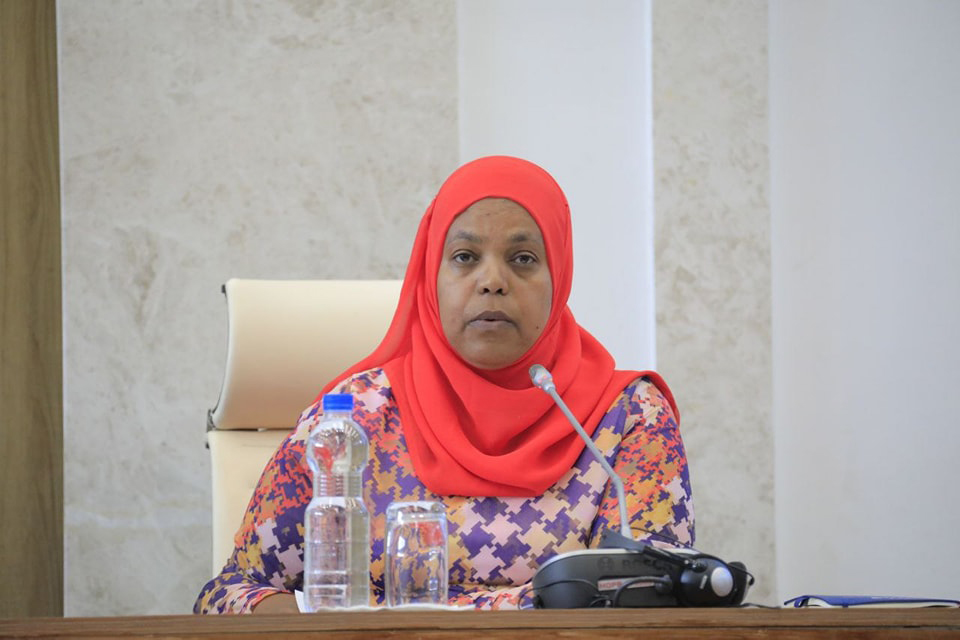
Fortune News | May 06,2023
Feb 24 , 2024
By BERSABEH GEBRE ( FORTUNE STAFF WRITER )
A crisis looms over the fertile lands of Gambella and Benishangul Gumuz regional states, where the future of commercial farming was once in high hopes.
Faced with the spectre of foreclosure, burdensome tax demands, and a crippling lack of working capital, approximately 5,800 commercial farmers are seeking urgent intervention from regional and federal authorities. Last month, these farmers, represented by the Crop Producers & Exporters Multisectoral Association (CPEMA), conveyed their dire situation to senior officials of the Ministry of Agriculture, warning of an impending halt to their operations.
At the heart of their plea is a request to restructure loans provided by the Development Bank of Ethiopia (DBE), a state-owned policy bank that has provided 70pc of their financing. They are calling for tax relief from regional governments, citing the difficulties of operating amidst the unstable security situation. The political unrest of the past three years has led to widespread property losses due to robbery, deepening the financial crisis.
The absence of accessible loans from commercial banks for rain-fed agriculture exacerbated their plight, after they were unable to initiate new farming cycles under the current conditions.
Nonetheless, the Association leaders remain hopeful for a loan rescheduling agreement with the DBE. Melkamu Abraham, the head of the Association, spoke of the dilemma faced by many commercial farmers, who are puzzled over how to fulfil their tax obligations at a time of declining productivity.
"We need compensation for the damages," Melkamu asserts, emphasising the critical need for support.
In response to the political unrest, the Benishangul Gumuz Regional State has initiated tax penalty waivers for 950 businesses, acknowledging the hardships faced by the community. The regional tax bureau has designated commercial farmers based on their proximity to conflict zones, offering some reprieve through waived interest and tax penalties. Despite these measures, the farmers contest the legitimacy of the initial tax demands, especially since many farms have been abandoned due to the ongoing conflict.
Ethiopia's agricultural sector, predominantly comprised of smallholder farms, faces unprecedented pressure. With around 60pc of farm holdings measuring less than one hectare, and nearly 90pc of the cultivated area farmed by smallholders, the country struggles to meet its food demand. Traditional farming practices, climate change, and a growing population aggravate this struggle. Research conducted four years ago by Ibsa Dawud and Feyesi Mohammed advocated for a transition towards commercial agriculture, emphasising the need for improved incentives and infrastructure.
Alemu Bayisa, head of Tax Audit & Supervision in the Benishangul Revenues Bureau, revealed that 150 million Br was foregone through the waivers on interest and penalty.
"Few have reached out to settle their initial obligations," he said.
Acknowledging the array of obstacles confronting commercial farmers, Dereje Abebe, team leader of out-growers and contract farming at the Ministry of Agriculture, disclosed plans to convene farm owners, and representatives of the DBE and the two regional states in an effort to find a resolution to the cocktail of crises faced by the businesses.
"We can't go to every region and solve their problems," said Dereje.
Yohannes Ayalew (PhD), president of the DBE, conceded the necessity for prompt action in response to the loans granted to farmers in the Gambella Regional State.
"The DBE remains committed to supporting commercial agriculture through financing models that help rainfed and irrigation projects, aligning with national food self-sufficiency goals," said Yohannes.
According to him, the Bank is prepared to take strict measures against those unable to repay, indicating a firm approach towards loan defaulters. However, the individual stories of farmers like Hadush Gebrehiwot, who has been farming in the area for 11 years, bring the crisis into sharper focus.
Struggling to sell his stock of mungbeans (800Qtl) piled up in the 700hct farm, and facing the seizure of his farming equipment by the Bank, Hadush's predicament reveals the risks wrought by political instability, which has disrupted agricultural activities and complicated the marketing of produce. He blamed last year's political unrest in the region as one of the main hurdles to timely farming and delivery of the mungbeans to buyers.
While discussions have been ongoing between the commercial farmers and officials from the regional state, Hadush does not foresee his company's ability to either pay the tax or service bank loans in a short time.
"Sales from this season are used to finance the next," he said.
The Gambella Regional State Investment Commission has received loan obligation notices to 73 commercial farmers, with asset seizures looming for those who delay further.
"Most of the developers vanished decades ago," Low Obup (PhD), head of the Commission, disclosed to Fortune.
He confirmed that three developers had appeared before the Commission to express their concern over the looting of harvests after the Bank had seized their assets over the past two weeks. According to Low, a path forward has been crafted following a meeting last week, with participants from the Bank and officials from the Ministry attending.
While the number of commercial farm developers in the regional state dropped by half, finding markets continues to be a serious challenge for those still around.
Getahun Hailu, head of the 60-member Gambella Crop Production Furtherance Sectoral Association, brought the issue of 22,000Qtl of unsold mung beans and cotton before the Ministry. He revealed that 29 commercial farmers across three weredas have been unable to find a market for their products while they concurrently face tax pressure and bank repayment issues.
With produce languishing for two years, the ability to restart operations is severely constrained, reflecting a systemic issue that impacted the financial viability of commercial farming in the region, reads a letter he addressed to the Ministry.
As commercial farmers seek government intervention amidst mounting pressures, the perspectives of agricultural economists like Shimeles Araya (PhD) shed light on the broader implications. Shimeles argues in favour of the necessity for a strategic shift away from an overreliance on rain-fed agriculture, pointing to the enduring challenges of climate change, traditional practices, and demographic pressures. According to him, there should be mutual interest between regional bureaus in securing tax revenues and the DBE in maintaining a healthy loan portfolio, advocating for a balanced approach that serves the needs of all involved.
"They are both right to ask for what they are owed," Shimels told Fortune.
PUBLISHED ON
Feb 24,2024 [ VOL
24 , NO
1243]

Fortune News | May 06,2023

Fortune News | Jan 26,2019

Editorial | Jun 22,2024

Fortune News | Aug 28,2021

Verbatim | Dec 10,2018

Verbatim | Nov 29,2020

Fortune News | Apr 21,2025

Fortune News | Mar 19,2022

Fortune News | May 04,2024


Dec 22 , 2024 . By TIZITA SHEWAFERAW
Charged with transforming colossal state-owned enterprises into modern and competitiv...

Aug 18 , 2024 . By AKSAH ITALO
Although predictable Yonas Zerihun's job in the ride-hailing service is not immune to...

Jul 28 , 2024 . By TIZITA SHEWAFERAW
Unhabitual, perhaps too many, Samuel Gebreyohannes, 38, used to occasionally enjoy a couple of beers at breakfast. However, he recently swit...

Jul 13 , 2024 . By AKSAH ITALO
Investors who rely on tractors, trucks, and field vehicles for commuting, transporting commodities, and f...

Oct 25 , 2025
The regulatory machinery is on overdrive. In only two years, no fewer than 35 new pro...

Oct 18 , 2025
The political establishment, notably the ruling party and its top brass, has become p...

Oct 11 , 2025
Ladislas Farago, a roving Associated Press (AP) correspondent, arrived in Ethiopia in...

Oct 4 , 2025
Eyob Tekalegn (PhD) had been in the Governor's chair for only weeks when, on Septembe...